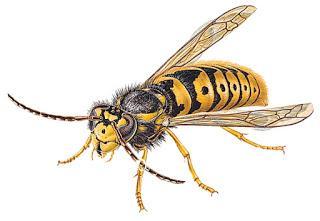
Hornets, paper wasps and yellow jackets are the kind of wasps that commonly build nests in gardens and lawns. Although these insects play an important role in gardens as pollinators and predatory insects, they can quickly become a nuisance for their painful stings. Chances of getting stung by wasps is more if their nest is close to your house.
There are several methods exercised for wasp removal & control in Melbourne. Some preventive measures that help to keep them at bay or deter them from entering are as follows:
- Not keeping any food lying around
- Ensuring that garbage bins are always sealed tightly
- Keeping drinks covered whenever outdoors
- Picking up fallen fruits in the garden
If wasps have already started nesting in your lawn, then resorting to the above method can be of no use. In order to tackle an invasion, first you must understand the type that you need to deal with and also their nesting habits. For instance, yellow jackets generally build nests in ground which can remain concealed for a long time. Sometimes, they also make nests in shrubs and other areas such as wall voids of old buildings. Hornets also choose trees as their nesting grounds, but sometimes they can thrive in eaves of old buildings. Paper wasps are the least aggressive of the lot and generally builds their nests in eaves, overhangs, abandoned structures or tree limbs.
Usually, spring season is the most suitable time for exterminating wasps, because the queen begins to establish her colony by the end of this season. During late summer and autumn, their nests tend to decline as collection of pollen and sugary sweets becomes more important for them at that time. If you have a large nest in your garden and lawn, and its inhabitants are the aggressive types such as hornets and yellow jackets, then it would be better to call for the services of a reputed firm offering pest control in Melbourne.
If the nest is small, you can possibly perform an extermination job exercising suitable precautionary measures and wearing protective gear. Purchase a wasp spray from any local home improvement shop and spray it in the nest during the evening, when the wasps are less likely to be active. For an aerial nest, cover it using a plastic bag and then seal it tightly. Cut the branch that includes the nest and either freeze the bag or leave it under the sun for killing the wasps.

